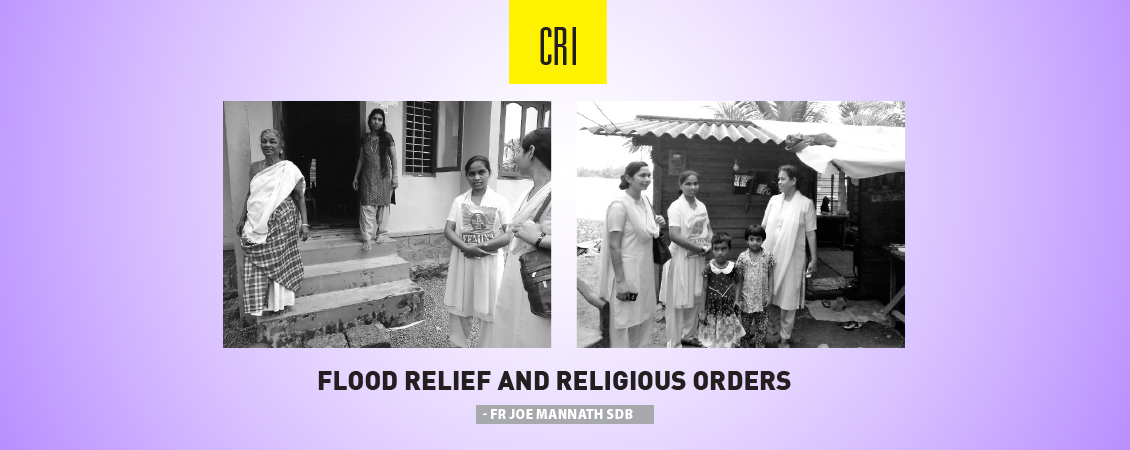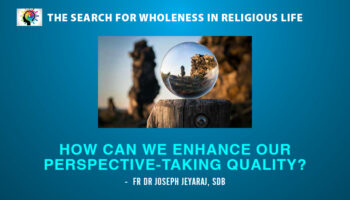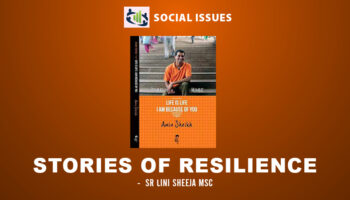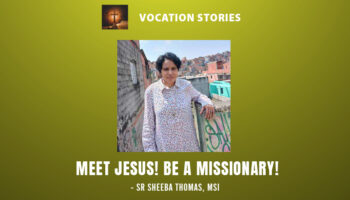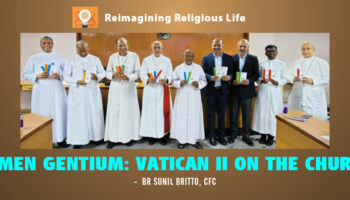The recent floods in Kerala and Coorg caused incredible damage, of course. There is no denying the unprecedented nature of this disaster.
But what was equally evident, and even more striking, was the exceptional human heroism and solidarity so many people demonstrated in the wake of the tragedy. As we know, suffering brings out the best and the worst in human beings. Some reached out with selfless concern and did heroic things—of which the fisherman of Southern Kerala were an outstanding example. Others used to chance to promote bigotry and blame the victims. Both are aspects of human beings.
What is the role religious orders played in reaching out to the survivors?
Nothing short of heroic, to say the least.
In fact, most observers would admit that the Catholic church provided the most effective, the most extensive and the most immediate relief work after the floods.
Speaking in the name of CRI, I am talking mostly of what religious communities did; but I must add, without any hesitation, that a number of parishes and institutions run by dioceses and parishes did yeomen service.
A priest said, “As I heard of the floods, and stood wondering how to help, I found that I did not have to look for help. People came to me spontaneously, asking: ‘What can we do?’ I opened our halls to shelter the people who were brought. But I did not have to worry about food or water. So many individuals and families came with food.”
Another said, “As soon as boats started coming into the town carrying people most of whom were drenched and shivering, some Sisters from the neighbouring convent rushed there with hot coffee and tea. Seeing this, bakeries and other shops nearby brought eatables for the people—all for free distribution. The shopkeepers did not use it as a chance to make a fast buck.”
A collector said on TV how impressed he was by the generosity of the people. He made an appeal on social media, expecting that by evening a truckload of food might come in. Instead, so much more food and water was brought by people—and the material kept coming.
Some religious orders opened all their houses to shelter the flood victims. Others took in hundreds of people and provided them not only food, but also clothes, since many of the survivors had rushed out from flooded homes with just the clothes on their back. Young people volunteered; and they informed people through social media.
One lovely trait so many commentators noted: Neither the help-providers nor the beneficiaries asked which religion or caste people belonged to. Wouldn’t it be wonderful if this same sense of oneness were evident in normal life, too, and not only in times of tragedy?
Grown-ups and college students moved around, going to homes and offering to clean up the mess after the waters receded. They did this as a free service, of course, not for money.
It is impossible to quantify the contribution of religious in this unparalleled saga of human generosity. How do you measure the day and night availability of religious to the victims? How do you calculate the help given by institutions that opened their gates and hearts to all those who needed a safe place, clean food and water and urgent medical attention?
The financial contribution given by the religious orders in Kerala to the church’s relief work (according to one source) exceed sixty-six crores.
As for the National CRI, I wrote to the Major Superiors that all those who wanted to contribute money, could do it through Caritas, since Caritas has the experience in dealing with emergencies and the money would be accounted for. This is only a small part of what the religious orders spent or donated directly. Even this small part, which was routed through Caritas, exceeds 1.5 crore.
Following Jesus’ teaching to do good without a show (“Let not your left hand know what you right hand is doing”), most have done impressive and even heroic work without publicizing it, nor seeking kudos. There were no complaints about discomforts, nor efforts to get the people to move out, nor waiting for Government help to compensate for what Catholic religious houses or parishes or schools or colleges spent so generously.
The Church’s well-functioning official structure, its dedicated cadre of religious and priests and committed lay persons, and the general trust most people have in the Church and in its personnel proved their worth in this time of tragedy. So, too, as writers from elsewhere in India noted, Kerala’s commendable atmosphere of inter-religious harmony, sense of human dignity, self-confidence and political awareness, coupled with the state’s overall human, social and economic development, prevented greater loss of life and property, and facilitated mutual trust, open collaboration and effective remedial action.
We, religious, are at our best when human needs are pressing, when unpaid work is called for, when people need to be treated according to need, not affiliation, and where others fear or hesitate to step in. Examples abound, all around us. The recent floods are just one instance.
Fr Joe Mannath SDB
To subscribe to the magazine, click Subscribe
